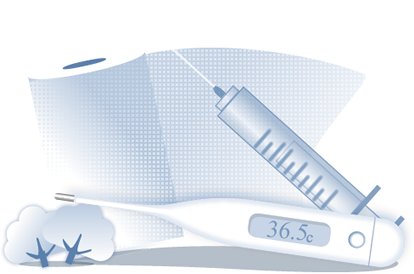
Everything you need to know about urine tests during pregnancy
It's official - you're going to be a mother in 9 months! If you're pregnant, you need to be aware that urine tests, along with blood tests, are ones that you'll need to do increasingly frequently. They'll let you and your gynecologist know that everything is going well, whether you're a risk of diabetes or if you've got a urinary infection.
It can help prevent gestational diabetes
Why do you have to do a urine test so frequently, on average once a month? That's easy: it's the test that lets you monitor and prevent 2 of the most common conditions in pregnancy, gestational diabetes and preeclampsia. They are in fact both linked to the concentration of glucose in the urine.
The chances of infection increase during pregnancy
We need to let you know that from the moment you're pregnant, it's more likely that you will run into conditions caused by intestinal bacteria. It's all because of progesterone, which relaxes and distends your urinary tract. The result is that bacteria are able to survive and multiply more easily. A urine test will be able to tell you if there are any risk factors in that area.
Go to see the gynecologist with the medical report
When you've picked up the medical report, it's best to go to the gynecologist for a correct interpretation of the results. But just so you know, we'll tell you briefly what it's made up of.
The report on the urine test is divided into 2 parts
You'll see that the medical report is divided into 2 sections: the chemicophysical description of the test, and an assessment of the cell sediment in the urine. These are the particles that are deposited at the bottom of the test tube after it's been through the centrifuge. Obviously the results in both sections are strictly correlated and are mutually linked.
The first part of the report is the least important of the 2
The chemicophysical urine test during pregnancy is less important as it's almost always visual. The first values you'll see in the report talk about density, pH, appearance and colour. For example, your urine might result as 'concentrated' if you haven't had much to drink, whereas it will be lighter in colour and transparent if you drink a lot of fluids regularly. These figures won't provide relevant information to your gynecologist if taken on their own or in isolation however.
A physical examination will tell you if you're at risk of miscarriage
The chemicophysical test, however, can help to find out if you might hypothetically be at risk of miscarriage: if your urine seems to be slightly cloudy, it could mean that you're having a small amount of bleeding and that the danger of miscarriage could be imminent. But even in this case, your gynecologist won't rely on just one figure, he'll compare all the results together. It could just simply be cystitis or a small sore, so don't worry until you know.
Those substances that shouldn't show up in your urine
The most useful information provided by the chemicophysical testing of your urine can come from the presence of some substances that shouldn't be there, but which have, for whatever reason, shown up. An example? Nitrites, ketone bodies and hemoglobin... and let's not forget about proteins, which above a certain level can be an indicator of preeclampsia. And there's also glucose, an alarm bell for gestational diabetes.
Check your leucocytes to find out if you have an infection
The second part of your report deals with analyzing the sediment in the urine, and could reveal to your gynecologist that you might have an infection. The most important value to look at are the leucocytes: if they're between 4 and 8, it means everything is under control. If they're higher than that, then you definitely have an infection.









